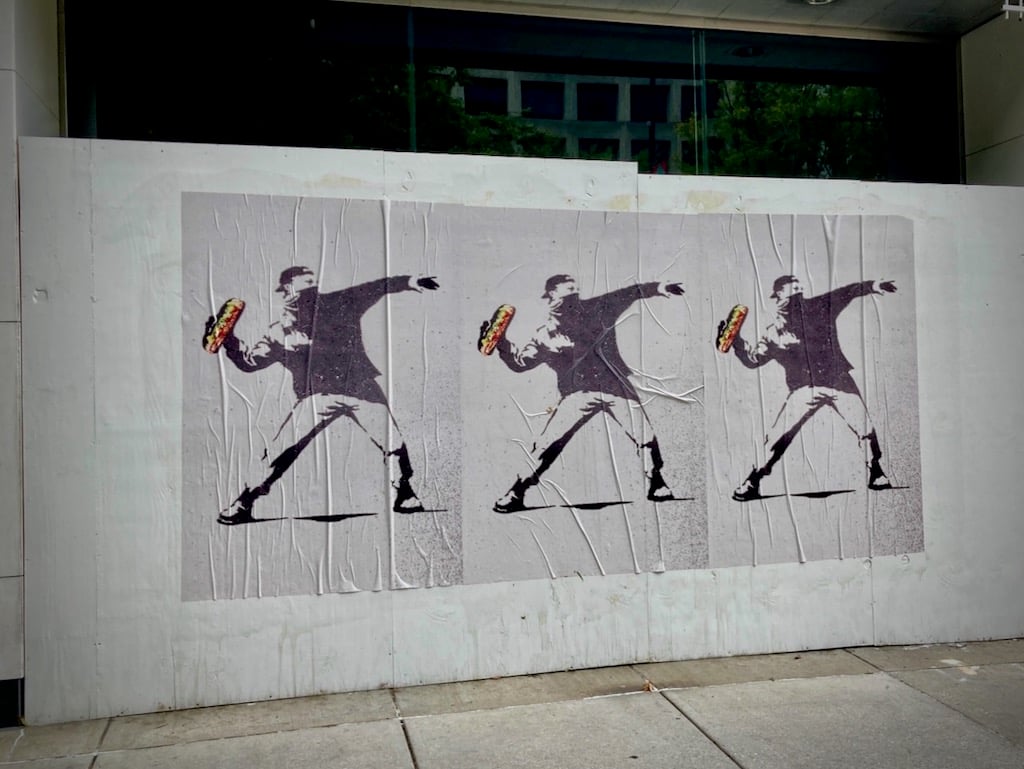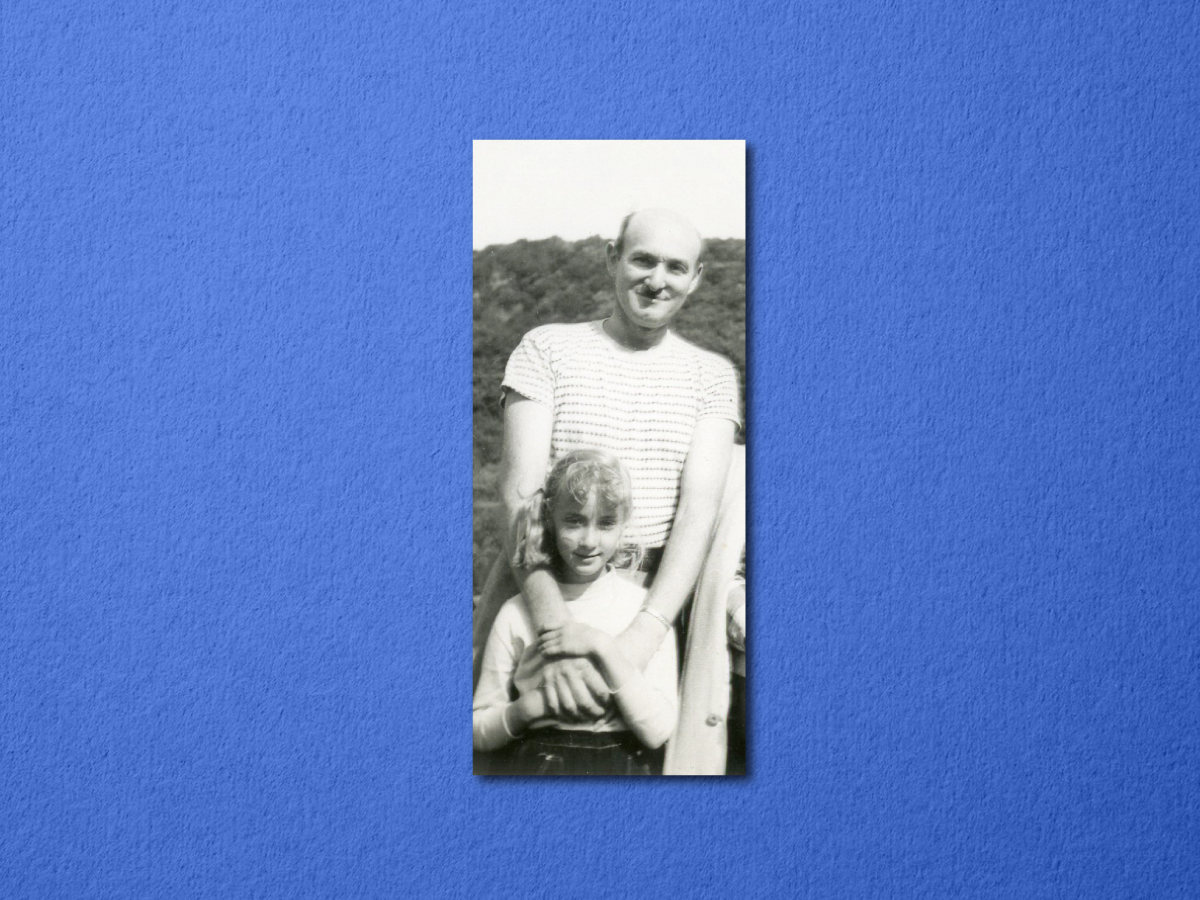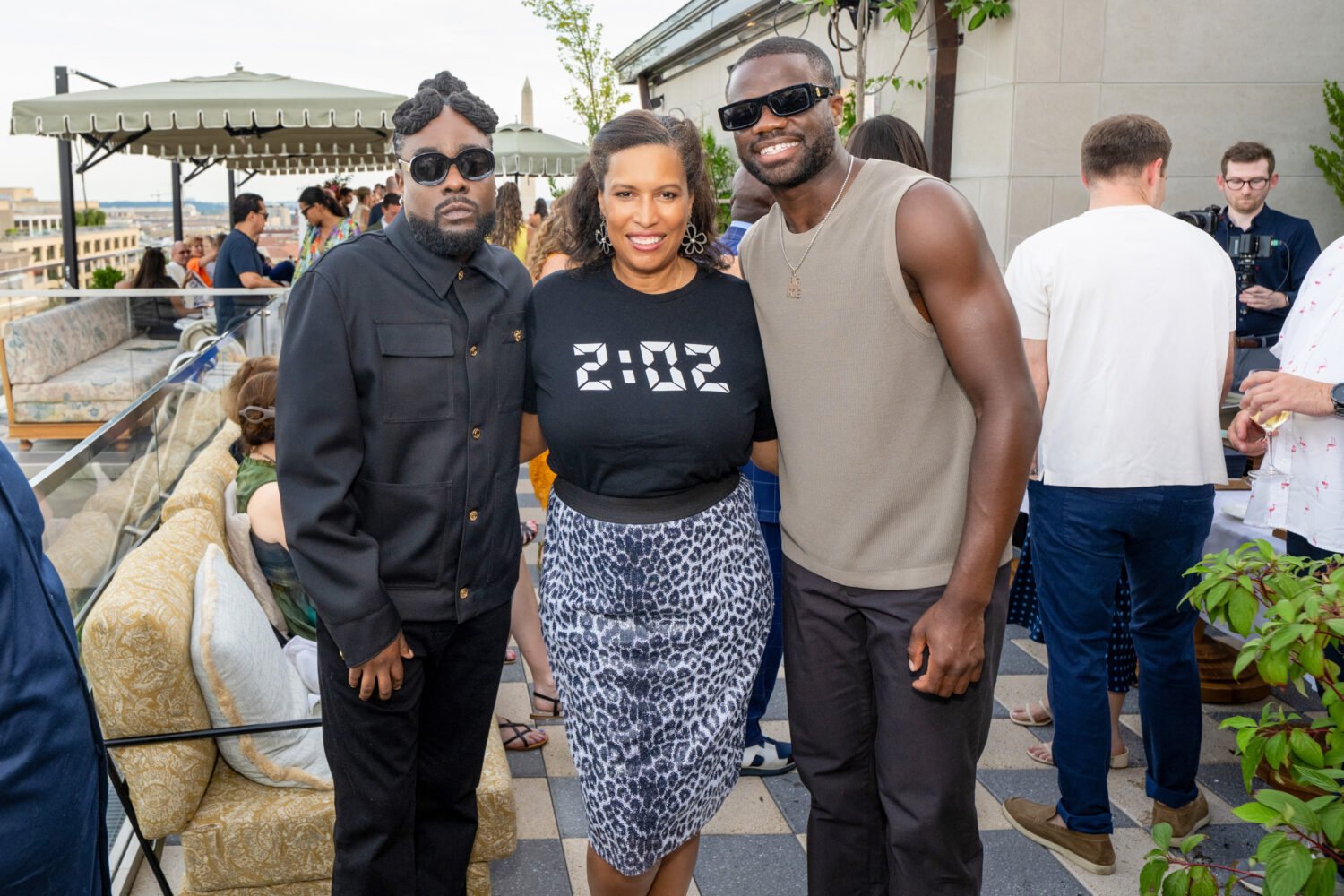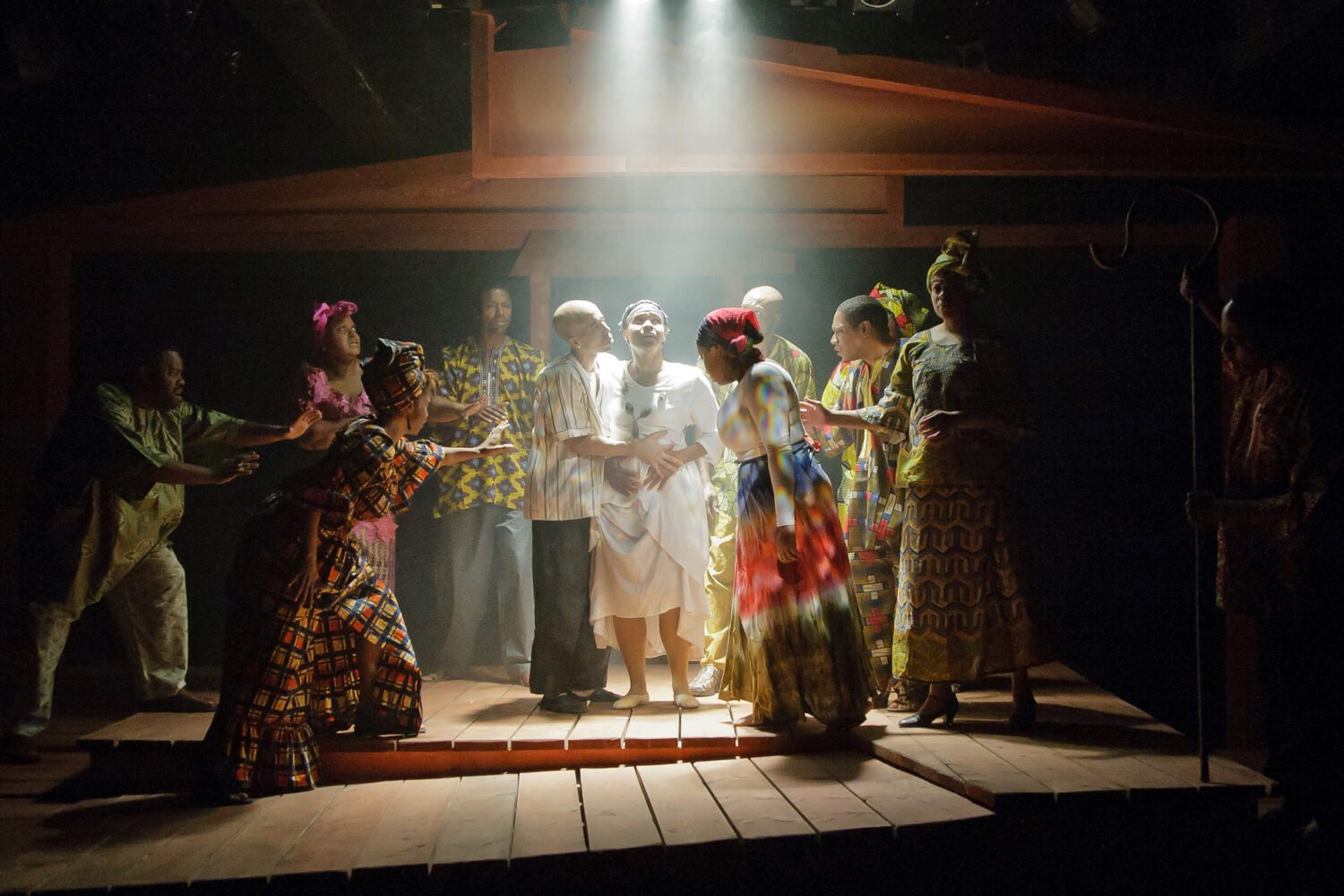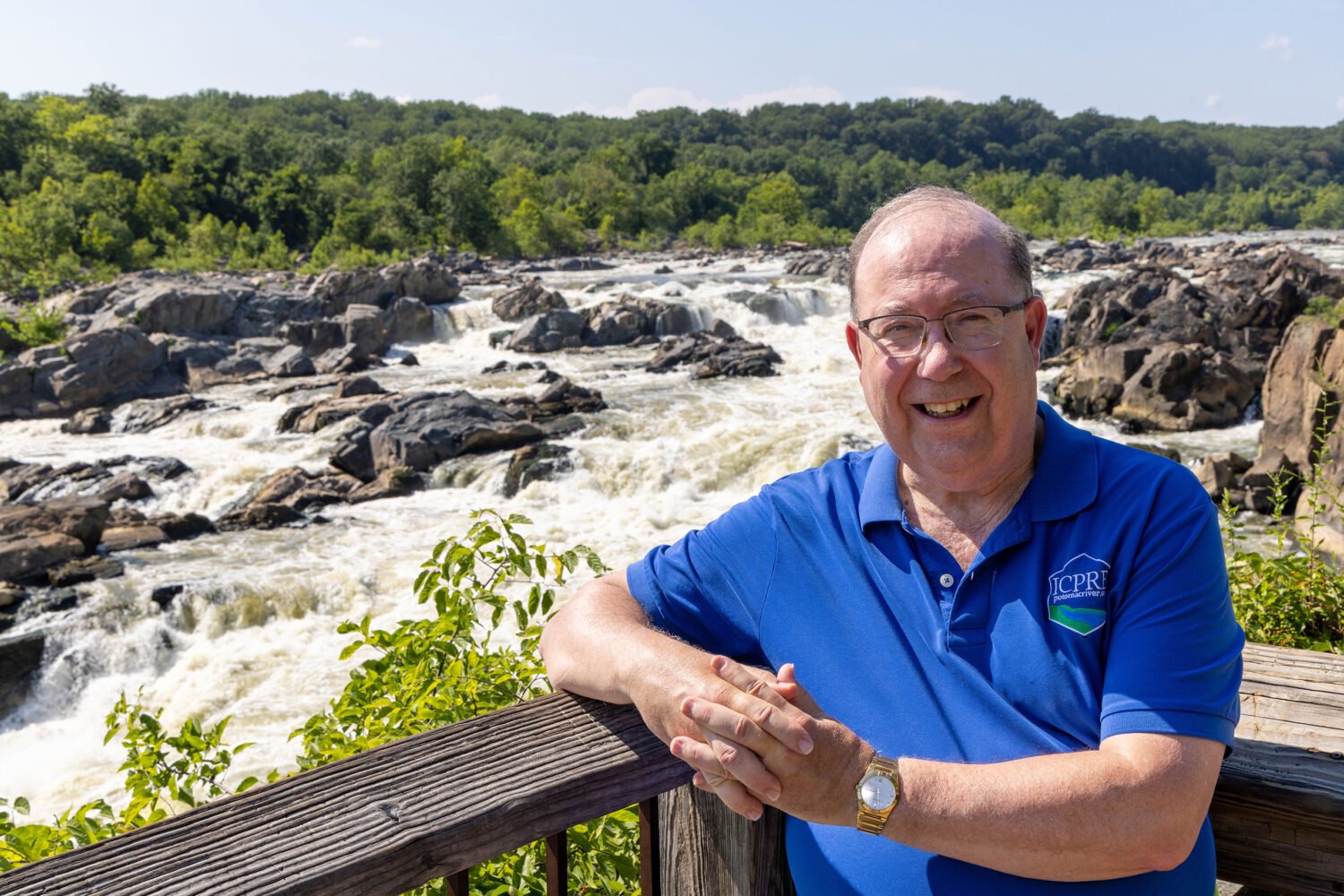On July 13, 1973, White House aide Alexander Butterfield revealed the existence of an Oval Office tape-recording system. Any doubts about Bob Woodward and Carl Bernstein's Watergate reporting for the Washington Post were put to rest when a June 23, 1972, "smoking gun" tape proved what the two reporters had suspected early on–that President Nixon was behind the Watergate break-in.
Overnight, Woodward and Bernstein became household names. They wrote the best-selling All the President's Men and became millionaires. Robert Redford and Dustin Hoffman portrayed them in the 1976 movie.
Woodward, 60, whose parents divorced when he was 12, is the son of a Midwestern Republican judge, graduated from Yale in 1965, and joined the Navy. He's a quiet, punctilious, conservative, poker-playing workaholic who has written ten bestsellers since All the President's Men. He's never left the Post, establishing himself as a journalistic elder statesman whose phone calls inspire fear.
Bernstein, 59, grew up in Silver Spring, a "red diaper" baby born to Communist activists who remained married for 63 years. He became a Washington Star copyboy at 16, a pool shark, a teen leader in B'nai Brith, and a University of Maryland dropout. He's now more famous as a celebrity than as a journalist, with his name appearing in gossip-column items about the women he's dated and the people he owes money.
Bernstein's 1980 split with his second wife, writer Nora Ephron, was excruciatingly public, and she wrote a roman à clef, Heartburn, about it. Since leaving the Post in 1977, he's worked at ABC, Time, and Vanity Fair and has published two books, though he's never earned the fame and money that follow Woodward.
With such different trajectories since Watergate, it's hard to imagine they'd still be friends.
"Their careers have played out very much the way they were as young reporters," says Peter Osnos, a former Post reporter. "Bob is prodigious and productive and formidable, and Carl is brilliant in spurts. The combination at the early stages of their careers created something historic."
THE JITTERBUGGER AND THE NAVY GUY
Bob Woodward on working as a teenager in his father's law office:
I was the janitor. I'd be there at 10 at night. No one else is there. You'd go around cleaning up ashtrays and trash cans and sweeping. What's that on the desk? Oh, that's interesting. You start looking at what's on the desk, then in the drawers, then in the files, then eventually in what they call the disposed files.
I don't talk in cabs because people think the cab drivers don't listen. I clean my own office. I keep my office locked at home. I keep my files locked. The janitor knows. The cab driver listens.
Kathleen Woodward, Bob Woodward's first wife:
We got married right after I graduated from college and he had been in the Navy for one year. We were stationed in Norfolk, then San Diego. Bob was driven, and I mean that in the best way. He had written a novel at Yale. It was rejected, and he burned the manuscript.
Harry Rosenfeld, former Washington Post metropolitan editor:
Bob was recommended for a tryout in 1970. At the end of two weeks, my deputy said, "This guy needs a lot of aging in the bottle before he's for us." We got him a job at the Montgomery County Sentinel. Bob began to do very good stories there. They had very good material, better than what our own reporters got. Bob kept calling me.
Karlyn Barker, Post reporter:
Woodward and I were hired at the Post the same day in 1971. We sat outside Ben Bradlee's office waiting for his thumbs-up or thumbs-down. I remember thinking, "Gee, I hope they hire this nice young man." Nine months later, he was doing Watergate.
Tim Robinson, former Post editor:
Bob was not a good writer. Others have said English is a second language to Bob. Carl was the writer; Bob did the digging.
Stuart Auerbach, former Post reporter, who married Bernstein's first wife after they divorced:
Shortly after Bob came to the Post, we met outside the elevator and he said, "How's it going?" I said it was kind of a dull day–nothing much happening. He said, "What are you waiting for? Someone to give you a story? You gotta go out and get it."
Kathleen Woodward, Bob Woodward's first wife:
The divorce was a horrible experience. I was teaching in France, and I went to American Express to pick up my mail. There was a clipping from a newspaper, WOODWARD VS. WOODWARD, which I found quite shocking. Perhaps this is an example of him being demanding or severe. It was a legal announcement. His uncle was handling the divorce. We'd been separated, but my understanding was that we would communicate with each other before taking unilateral action.
Gloria Feinberg, who grew up with Carl Bernstein in Silver Spring:
I met Carl through B'nai Brith youth activities. He lived in a neighborhood that had tons of kids. His nickname was Howdy Doody. I think he won a look-alike contest.
Roberta Krasner, who grew up with Bernstein:
In elementary school, we got this "Freedom Card." If you finished your math assignment or whatever, you were trusted to work in the class garden or go to the library without teacher supervision. Carl said he never got a Freedom Card. He said, "I always wanted a Freedom Card."
Annie Groer, Post reporter who went to Montgomery Blair High School with Bernstein:
Carl's a phenomenal jitterbugger. At parties in high school, we danced together. Chances are if I saw him in the nursing home and somebody put on Bill Haley, we could get up and do it again.
Mary Lou Werner Forbes, former Washington Star editor, now at the Washington Times:
Carl came aboard as a Star copy boy around 1960. Editors would send you out covering things and see how talented you were. Carl had that marvelous gift for what the story was. He knew what would touch people.
Because Bernstein didn't have a college degree, the Star wouldn't hire him as a permanent reporter. He followed a favorite editor to a small paper in New Jersey for a year, returning to his hometown in 1966 to join the Post.
Richard Cohen, Post columnist:
I met him in 1968 when I came to the Post. He was great fun. He knows more about classical music than almost anyone I know. He knows more about rock music than anyone I know. As I got to know him, these layers kept appearing.
Chuck Conconi, Washingtonian editor-at-large, who worked at the Star, then later at the Post. Bernstein was one of the first people he met when he came to DC:
Carl had a reputation as a ladies' man. He was married to a Post reporter, Carol Honsa. One day when I was at the Star, I was sent to cover a dinner where Lyndon Johnson was speaking at the Shoreham Hotel. I ran into Carl, and we chatted for about five minutes. Three or four days later, I ran into Carol and she said to me, half-joking, "I didn't like how you kept Carl out that late the other night." I looked at her strangely. Then I got it, but it was too late. She just said, "Oh," and walked away.
Harry Rosenfeld, former Post editor:
When I was named Metro editor in 1970, one of the first big stories that broke on my watch was the murder committed by "Muffin" Mattingly and her biker boyfriend. They killed her daddy by crushing his neck with a crowbar. I wanted Carl to find out everything that happened to Muffin from the time she left her mother's breast to incarceration. The assignment played to his strength. He knew his town. But to use the word "disciplined" with Carl at that stage would be a contradiction.
"SOMETHING'S UP AT THE WATERGATE"
Bob Woodward:
It was a beautiful Saturday morning. June 17, 1972. The editors essentially said, "Who would be dumb enough to come in?" And they called me. Of course I came in. Eight people worked on that story the first day. The next morning was Sunday. Again, a beautiful day. Who came into the office to follow the story? Carl and myself.
Carl Bernstein:
We learned from each other. I learned restraint. Sometimes he was more willing to compromise with management or editors than I. Those skills, when accepted by me, often served me well. Not always. There's no question the synthesis of the two produced something extraordinary. In fact, one of the extraordinary things was how smoothly we worked together.
Bob Woodward:
Besides being young, I had precisely one year and nine months' experience in the newspaper business. Carl had 12 years. He taught me an immense amount about keeping notes and going back.
Harry Rosenfeld, former Post editor:
Carl would volunteer himself to the national staff without telling his city editor. It was during Watergate that Carl committed one of his early insane offenses. He rented a car to go out on a story and then left it in the garage. Meanwhile, all sorts of bills were piling up, so there was a strong urge to fire him. I argued that for once in Carl's benighted life, this was no time to fire him.
Bob Woodward at the National Press Club, speaking on the occasion of Watergate's 30th anniversary:
Carl and I were disagreeing. We were fighting with editors . . . not taking showers. . . . If you think this was glamorous, it was not. It was smelly.
David Obst, literary agent for All the President's Men:
Carl and Bob put together a book proposal in the fall. It began: "Martha Mitchell reached across the bed to John. He wasn't there. He was on the phone to the western White House. There was trouble." That was the tone. I took the proposal up to New York and had an auction and received zero bids. Nobody wanted to touch Watergate. I called then-Simon & Schuster publisher Dick Snyder and set up a meeting in Washington. The meeting was a disaster. Carl and Bob were a wreck. They left the Hay-Adams Hotel, and Dick Snyder said, "I'm going to pass." I did something I never did before–I burst into tears. I implored him to buy this book, and he did.
Robert Redford, actor who played Woodward in the movie All the President's Men:
I read a little article in some publication, and it hit me. They were two guys on the low end of the totem pole, and they couldn't be more different. Bernstein was radical, Jewish, intellectually inclined, very liberal. Woodward was a bland, boring WASPy Republican. How in the hell could they work together? I was only interested in a character-driven piece: What was it that these two guys did that led to a piece that no one else was doing?
I began to think of a low-budget black-and-white film that I would just produce, centering on investigative journalism and how it worked. I called these guys to see if I could get the rights to their story. That was in October 1972. I called Carl first, largely because he was the more flamboyantly drawn character in the press. He never called back. Then I called Bob. That didn't work, either. I finally got hold of Woodward in early December 1972. Bob said, "We are kind of busy," and he blew me off.
THE BOYS AND THEIR BOOK
David Obst, literary agent:
The boys got a $55,000 advance in fall 1972–"the boys" was Sy Hersh's nickname for them. They continued to pursue the story and try to figure out what the book should be. But they were chasing the story, so they couldn't work on the book. Redford came up with the idea to write about how the boys broke this. It was an unusual focus at the time, particularly for Bob. He didn't want to become part of the story.
Roger Wilkins, former Post editorial-board member:
In spring 1973, the Post won the Pulitzer Prize for public service. I was surprised that the Post had submitted Watergate as a package rather than individual submissions for Bob and Carl on reporting, me for editorials, and Herblock for cartoons. The boys came pounding into my office: "Can you imagine they did this to us? We gotta quit."
I said, "If you quit now, you'd be known in journalism lore as the guys who quit the biggest political story of the century." They calmed down.
Karlyn Barker, Post reporter:
In a sense, Woodward and Bernstein owe Barry Sussman a lot. Barry was the editor, and he called Woodward in on the story and let Carl clamber onto it. My understanding is that when the book contract came around, Barry wasn't offered a piece of the book. He got pushed aside.
Bob Woodward:
It was a reporter's story to tell, not an editor's. Sussman's role is fully laid out in the book. They compressed a character out of the movie, and I think he was not happy about that.
Barry Sussman, former Post editor:
I don't have anything good to say about either one of them.
Robert Fink, researcher on All the President's Men:
I worked on this book for about seven months, seven days a week. Carl is a nocturnal person, and most of the stories you hear about him are true. Bob is a hardworking guy. I was filling in blank spaces, fact-checking. It was very intense. The manuscript was finished roughly on January 1, 1974. I got mentioned in the acknowledgments. Now they don't talk to me.
Bob Woodward:
Fink was not involved in the reporting. He did some research. I guess he's not happy.
Chuck Conconi, former Post reporter:
I suspect their book has created a lot of young journalists with the right kind of ideals–Bob and Carl did things that helped change the country. It also created journalists who want to be rich and famous.
Robert Redford, actor:
I did not expect the glamorization of those two reporters. I expected the revelation of their work to be the most important thing. I got depressed when I began to see that people were getting into journalism for the glamour and for going after people.
HOLLYWOOD TAKES OVER
Dustin Hoffman, actor who played Carl Bernstein in the movie All the President's Men:
I spent about three months going to the Post every day to absorb as much as I could. There were certain things that I picked up–I tried to emulate them, not imitate them. Bernstein was an avid smoker, so I would watch him smoke. He had a habit of getting a lot of ashes on his tie and shirt.
I was told by Redford, who was told by Woodward, that the difference between Woodward and Bernstein was that with Woodward, A led to B, B led to C, and so on. But Carl was impatient. He would get bored going from A to B. He'd make the jump from A to F, but he'd be right.
Robert Redford, actor:
Carl had no trouble letting you know how colorful he was. Bob was purposely more reserved and hidden. I said, "Jesus, Bob, you are making it hard to draw a bead on your character."
He'd say, "I'm just not interesting. Carl's more interesting."
I asked, "Why are you still so driven?"
He said, "When I was at Yale, I took a comprehensive test. Two days in row. I had not studied for the first one. I could tell I did really poorly. I was devastated."
Bob was upset that he had not done the proper preparation. That night, he studied all night and got everything nailed. When he got the results, they were the opposite of what he was expecting. The first day's test, he'd done very well. The second day, he failed. He said, "I realized then I did not know what good work was and I was going to have to work doubly hard."
I latched on to that as a clue to his tenacity and why he was such a workaholic. But I felt that underneath that bland, polite exterior was someone who had a killer instinct as a journalist.
Harry Rosenfeld, former Post editor:
The movie affected everyone in the newsroom. People's noses were out of joint because they were in the movie, or they weren't. But no one said, "These two jerks didn't deserve it."
Bob Woodward:
They made All the President's Men into a movie about reporting. It's not about Carl's personality or my personality. It's about reporters. I don't take all that stuff seriously. What's nice and fun and meaningful about journalism is the work. Being in the movies and being known is not what it's about.
David Obst, literary agent:
After the book and movie, Woodward seemed like the same guy to me. I saw much more of a change in Carl. When you have somebody who suddenly has Dustin Hoffman playing him heroically on screen–well, I think he really dug it. I think Bob dug it too, but Bob was not one to show it.
"THEY'RE STILL FRIENDS?"
Scott Armstrong, high-school friend of Woodward's and researcher onThe Final Days, sequel to All the President's Men:
Woodward's a complicated person, and Carl kind of pushed the limit–he disappeared for a very long time. He had a lot of other things going on in his life.
But Bob always saw the utility of what they had done and had affection and loyalty to Carl. Bob recognized that Carl had a certain destructive streak in him. At one point Bob said: "I'm just going to try to keep my business a bit more separate."
In 1976 Bernstein married New York-based writer Nora Ephron, and in 1977 he left the Post. She filed for divorce in 1980 after his affair with Margaret Jay, wife of former British ambassador Peter Jay.
Bob Woodward:
I thought Carl made a mistake by leaving the Post and going to New York. We both needed the Post. The kind of opportunity I've had there to do what I wanted and still work for the paper was available to him, but he thought in terms of a more literary career. I think it was Nora's influence.
Scott Armstrong:
I think what Bob's really saying is he had to make a choice between the two sides of Carl. If Carl wanted to be in New York at parties and slip his hand down somebody's pants behind the couch, that was Carl's business, but Bob didn't want to be involved.
Carl Bernstein:
Bob and I had this rough period, some of it during The Final Days. Then when Bob's marriage [to second wife Francie Barnard] broke up [in 1978], I called him and said, "Are you all right?" We hadn't talked in a while. I think he was glad to hear from me. We then became extraordinarily close and have been since. I don't know how he characterizes it.
Liz Smith, gossip columnist, in her memoir, Natural Blonde:
The stories about Carl's involvement with a married woman . . . were epidemic, but I discounted them. . . .
One day Nora rang me up and said in her characteristic determined kind of way: "Liz, I have a story for you. Carl and I are going to divorce! Please write it." . . . I did write on December 19, 1979. . . .
One night at a party I ran into Carl and he forced me up against a wall, started weeping, and told me I had ruined his life.
Bob Woodward:
One turning point was his breakup with Nora Ephron. I decided to be Carl's friend, and lots of other people called Nora and said, "Can you believe what Carl has done, and isn't this awful?" I didn't. I always wondered why Nora and Carl fell together, and I didn't see that as a natural, long-lasting relationship. But Nora's smart, capable. Carl said something very important to me, which is true: There are always two sides to every story and the breakup of every marriage.
Carl Bernstein:
Bob and Nora have never gotten along well. There are terrific things about Nora, but Bob didn't see them.
Carl Feldbaum, assistant special prosecutor for Watergate:
A mutual friend introduced me to Bob after Nixon resigned. He keeps a strict dichotomy between his professional and personal lives. He's one of the most disciplined professionals I've ever known. Part of that is that he has an intense interest in secrets. He's probably the most astute student of human nature I've ever known. He wants to know what makes everyone tick. When he was growing up, his family kept secrets from him. He doesn't like secrets he doesn't know.
In 1979 Woodward finished his third book, The Brethren, on the Supreme Court, with Scott Armstrong, a friend who had followed Woodward to Yale and then to Washington in 1973 after Woodward recommended him as an investigator for the Watergate committee.
Scott Armstrong:
When The Brethren ended, we wanted to buy the San Francisco Chronicle. We had a lawyer who had a gift for putting deals together. The idea would be to have a real newspaper in San Francisco. But it was an idea whose time hadn't come.
Carl Bernstein:
Bob and I started talking about my coming back to the paper. I wanted to come back. We came up with this idea that we would become co-Metro editors and get in the race to succeed Ben Bradlee. Bradlee went for it. He took it to Katharine Graham, and she said, "This is a very bad idea. You can't have a two-headed machine." Katharine was probably right. Who knows? Out of that came the idea I would go to the Style section and Woodward would go to Metro.
I never was going to succeed Bradlee. Maybe in my heart I thought it was possible, but in my head I'm sure I must have realized I'm not quite the politic person to run that route.
Instead, Bernstein went to ABC, where his lack of discipline became obvious after ABC News president Roone Arledge, a Hamptons buddy, deposed the Washington bureau chief and convinced Bernstein to take the job even though he'd never worked in TV.
George Watson, former ABC Washington bureau chief:
Carl came to ABC in 1980. I'd been bureau chief since early 1976. Roone Arledge thought, and rightly so, that Carl was one of the two most celebrated reporters at the time. He neglected, however, to investigate Carl's capacity for running anything. I agreed to stay on for eight weeks and overlap with Carl. I discovered quickly that he didn't keep regular hours. If you expected to see him in the morning, you were lucky to find him in the afternoon.
Sam Donaldson, ABC News correspondent:
Carl will tell you to this day that he's not cut out to be a bureau chief. He's far more comfortable working the phones as a reporter than trying to run a bureau. It was Roone Arledge's idea. Roone was a genius. I'm not going to say the word aloud, but Roone was a star-blanker. Roone was trying to put ABC News on the map in a big way.
George Watson:
After Carl left the bureau-chief job, Ted Koppel tried to turn him into a television correspondent on Nightline. But Carl didn't quite work on television, either–behind or in front of the camera.
This was a really stressful time in Carl's personal life. Nora was around for a while, then the former British ambassador Peter Jay's wife was involved with him, and I think his socializing was taking precedence over his professional activities.
Carl Bernstein:
My marriage was falling apart. I was drinking too much. I was not a happy character. It became clear to me in weeks that the producers controlled what went on the air and the bureau chief really had no power in terms of content. None. But certainly, as an administrator I'm hopeless. It's just not what I do. It was disastrous. So then I went on the air, which I really enjoyed.
Woodward stayed close to home. In 1979 he became Post Metro editor, presiding over the largest of the paper's staffs. In 1981 he moved in with Post reporter Elsa Walsh.
Woodward took an interest in an ambitious black reporter for the District Weekly section, Janet Cooke, 26. Her story about an eight-year-old heroin addict named Jimmy got her on the front page in September 1980, nine months after being hired, and won her a Pulitzer Prize. The story turned out to be fabricated, and Cooke was forced to leave.
Ted Gup, former Post investigative reporter under Woodward:
The Cooke affair was devastating for Bob. We all wanted this brilliant, talented black woman to reach her full potential. Under those circumstances, it was all too easy to suspend critical judgment. Bob was at the helm. If you are at the helm, you get the credit, you get the blame. Bob championed her in ways that were not only excusable but commendable. Maybe it did spell the end of his aspirations to be executive editor.
Ronald Kessler, former Post reporter who worked on Woodward's investigative staff from 1981 to 1984:
I had trouble working with him. Everyone who worked with him did. There wasn't the finesse that was needed as an editor. He was a great reporter, and that's what he should stick to. He's since acknowledged that he's not cut out to be an editor.
In 1983 Nora Ephron exacted revenge by writing Heartburn, a thinly disguised account of her marriage to Bernstein. Soon after director Mike Nichols announced plans to make a movie, Bernstein was arrested for driving while intoxicated and hospitalized himself to detox. In the divorce settlement, he won the right to read the script to control how he was portrayed and to protect his sons, Jacob and Max, eight and seven at the time.
Bob Woodward:
I just didn't have the natural connection with Nora. I remember I heard Nora talk about being at some dinner and holding a discourse on the kind of lettuce that had been served: "Can you believe they served that lettuce?" There was just this sense that she had been offended. People agreed with her, and maybe I agreed with her, but it just wasn't the way I lived.
Dustin Hoffman, actor:
Nichols asked me to play Carl in Heartburn, but I didn't want to do it. I have children, and I didn't want to be a part of a project where I had to portray an actual person who had actual children who would grow up and have this distorted view of their father.
Carl Bernstein:
The way I blew our marriage, it's not something I feel good about. In the aftermath, we made sure our children got as much love and caring as they could get.
Jacob Bernstein, Carl Bernstein and Nora Ephron's son; Women's Wear Daily writer:
Yes, I read the book. No, it wasn't difficult. By the time I read it, it was long over. I don't want to talk about Heartburn.
Bob Woodward:
When he got arrested one night [in 1983], he called me, and it was a real low point. I went down to the police station and brought him back. We are all fighting our demons, and I have the utmost respect and admiration for the way Carl has learned to control his.
Carl Bernstein:
I haven't had a drink in almost 20 years. Interestingly enough, I didn't drink at all during Watergate. There was no time. I think I resumed drinking during The Final Days. I don't think other people recognized I had a problem, but I could see I did.
Judy Collins, singer, friend of Carl Bernstein's:
I really have seen Carl change. Getting your personal health back is a big start. All the health issues that go with drinking–the delusions and problems. It's living two lives, and to have the discipline to do that and keep trying to destroy yourself at the same time, that's a big job.
I had the same sort of path as Carl. When my greatest successes began to happen, I was a wreck. People expect a lot of you, and they don't have a clue what's going on and they make judgments that aren't totally informed.
Dustin Hoffman, actor:
Nora and I were working on another project that Nichols was going to direct. It was about a divorce lawyer. We were having these meetings and fighting about things. One time I said: "Why are you so angry at me, Nora? I'm not Carl Bernstein–I just played him."
In his first solo book, Wired, Woodward told the story of comedian John Belushi's death from a drug overdose. Belushi's wife, Judy, initially cooperated, but when the book came out, she disowned it.
Bob Woodward:
Wired turned out to be a portrait of self-annihilation. There's no way to write that story and have the people around him real happy about it because lots of them were enablers. No one had the courage or the love to say, "Stop," and take him to the hospital.
Lynn Hirschberg, contributing writer for the New York Times Magazine:
I was writing a cover story for Rolling Stone about Wired. People were outraged by the book because Woodward didn't understand the pull of drugs and basically tricked Judy Belushi into falling in love with him journalistically and handing over the keys to the kingdom and didn't write the truth. What became clear is that he wrote the words without the music.
Bob Woodward:
Judy Belushi said afterwards that I failed to show that doing drugs can be fun. I'm not kidding–go look at the quotes. So it was exactly the story that needed to be told at that time.
Jim Belushi, John Belushi's brother, in a TV interview quoted by Knight Ridder newspapers:
Allowing Woodward to write Wired "was the worst decision that I have made in my life."
Bob Woodward:
I think I was kind of angry. Belushi and I were raised in the same town, Wheaton, Illinois. That somebody clearly so talented–I loved him–was allowed to kill himself, essentially. . . .
If you look at the book, it's all on the record. It's one of my only books footnoted.
From the New York Times, May 19, 1984:
Carl Bernstein . . . has left ABC News. . . . Mr. Bernstein's three-year contract, at a reported $150,000 a year, would have run out in July. He has not appeared on the screen often recently and, according to ABC, will not appear anymore.
Rudy Maxa, author of a 1984 Washingtonian article about Bernstein titled "Watergate's Bad Boy":
I remember hearing from mutual friends that Carl was not in good shape, and I thought it was time to write about him. Basically, he was doing too many drugs. It was not a flattering piece, and it was really hard to do because I knew Carl. But some of his friends said later that maybe I had saved his life.
Carl Bernstein:
It was a piece of such vitriol and recklessness and animus that it was kind of disorienting to read it.
Around this time, Bernstein moved back to New York City and began showing up in gossip columns paired with high-profile women–among them Elizabeth Taylor and Bianca Jagger. While Bernstein lived the life of a socialite, Woodward married his longtime girlfriend, Elsa Walsh, in 1989. Their daughter, Diana, was born in 1996.
Chuck Conconi, former Post reporter:
I used to write a Personalities column in Style. Bob understands that a newspaper is more than just solid news. One day, some little boy had his dog die and wrote President Reagan a letter. Bob tipped me that Reagan secretly bought the boy a dog. I decided it was a cute little item, so I called the White House press office to confirm. Someone said, "Where did you find this out?" I said, "Bob Woodward." Five minutes later, Bob comes into my office, shuts the door, and says, "Chuck, I'm a big supporter of your column, but you must never tell anyone that anything I've told you comes from me."
Barbara Feinman Todd, researcher for Woodward's 1987 book, Veil: The Secret Wars of the CIA 1981-1987:
Bob's incredibly disciplined. If he's going to write ten pages a day, he's going to write ten pages. He won't be tempted by phone calls or hunger or people stopping by. I'd get there at 8:30 AM and he'd be at his computer, and it would look like he'd been there a while. I'd leave at night, and he'd still be at the computer.
William Powers, Woodward researcher from 1988 to 1991, former Post reporter, now National Journal media critic:
The Commanders was just going to be a book on the Pentagon and ended up not being about that. He sort of has a sixth sense about what's the next thing going on in the government.
William Prochnau, former Post reporter:
I'd like to see Bob, because he's such an extraordinary reporter, get into more risky topics than writing about the predictable. He's still doing things nobody else can do, but it's because nobody else has the access. But the books lately are far less risky than Watergate.
In 1988, Spy magazine had sport with Bernstein, shadowing him clubbing in New York City: "March 29, 2:40 AM: From our position inside the club, we see Bernstein depart with Lauren Hutton. Apparently eager to continue his relentless questioning for a possible profile of one of America's former top models, America's top journalist attempts to slip into her cab. She prevents this by slamming the door."
Kurt Andersen, editor of the now-defunct Spy:
Carl and a couple of other people were these sort of ubiquitous party animals–he would turn up at an envelope opening. We would get in pictures that a photographer took at a party and he would appear in them again and again. There were a few others like him–Jay McInerney, Anthony Haden-Guest. So we decided to create a mocking notion of a competition among these party guys of a certain age. We began collecting these pictures as if they were engaged in this competition which we called the Nightlife Ironman Decathlon. Carl didn't win, but he was one of the finalists.
Carl Bernstein:
I don't see myself [as a public person], but I'm aware that I am. I mean, I'd be naive to say I'm not aware of it. There've been times when I probably haven't had enough detachment or irony. Hopefully, at 59 years of age, I'm pretty comfortable with it all. I hope.
In 1989 Bernstein, published Loyalties: A Son's Memoir, a book he had struggled to write since leaving the Post in 1977. The book was about his parents' secret membership in the Communist Party and the tumultuous effect it had on him growing up. He wrote of the FBI staking out his bar mitzvah. His radical parents had asked him not to write the book. In 1990 Bernstein began writing for Time, including doing a stint in Iraq. After a year, he left the magazine's staff.
Liz Smith, gossip columnist, New York Post:
I always liked Carl. He used to be very sexy. And fun. But after he took out after me as the devil of gossip incarnate, we didn't see each other. Then later we did. He has pretty much been on his uppers since his jobs with ABC and Time ended. I tried to help him by writing about the book he did on the '50s and the Red scare, but nothing could help that.
Harry Rosenfeld, former Post editor:
Long before I ever knew what Carl looked like, I knew his parents. Whatever his good contributions to the Post were, he was sort of a prankster and a pain in the neck, and they knew that. But I liked his parents. They were nice, warm-hearted, decent people. I knew they were left-liberal, but I didn't know if they were specifically Communist.
Many people thought Carl shouldn't have written Loyalties, that it was unkind to his parents. I am a parent, and I had difficulty with his book. There was no one holding a gun to his head saying to tell the truth about whether his parents were Communist.
Carl Bernstein:
It was really, really hard to write Loyalties because of my parents' obvious disapproval. I've never gone back to reread a book that I've written, but I occasionally will look inside one, and usually it's Loyalties. Every once in a while in Loyalties, I see a moment that could use a little irony and a little less self-absorption and even perhaps self-pity. So I blanch a little when I read that.
Bob was very helpful at one point on Loyalties, because I had him interview me.
George Rush, New York Daily News columnist:
When I was working at the New York Post's Page Six, we got a call from a guy who had a deli on the Upper East Side that supplied Carl with sandwiches and coffee. He complained that Carl hadn't paid his bill. I don't remember how much the bill was, maybe just under $1,000. It was in that period when people were asking, "What ever happened to Carl Bernstein?"–even before the book on his parents. So we called Carl. He said, "I want to deal with this. I'm on the other line. Let me call you right back." In the next hour, the deli man calls back to say, "Mr. Bernstein came in and paid his bill."
Carl Bernstein:
It is not a secret that finances are not my strong suit. I've spent a lot of money and not saved enough until recently. Some might judge it profligate. I didn't see the need to invest for the future.
Richard Cohen, Post columnist:
When my marriage broke up in the late '80s, I moved in with Bob and Elsa, and I saw their relationship firsthand. He has a wife he truly and intensely loves, and she feels the same way about him. They are very at ease with each other.
Kathleen Woodward, Bob Woodward's first wife:
Bob's childhood friend Scott Armstrong remarked to me at one point that Bob, with his first two wives, hadn't really devoted himself wholeheartedly to the relationships. That's why he felt that in this third marriage, to Elsa, he was putting family in the larger sense first.
Bob Woodward:
Elsa's a balanced person and has helped me over the last 20-plus years–helped me balance. We have a seven-year-old daughter who is critical to our lives. We'll say to each other at night, "Just think if we didn't have this child."
William Powers, former Woodward researcher:
He's a father again after many years of not being a father, and he loves it. He makes the time for his daughter Diana. He's really involved in her school life. By the time I met his other daughter, Tali [a San Francisco Bay Guardian reporter, now 26], she was in high school.
Steve Weinberg, author of a 1992 Mother Jones article on Woodward:
At first he tried to talk me out of doing it. But when he realized I was determined, he had me over to his home. I tried to turn down breakfast every way I could. But there was Elsa whipping up the omelet. We sat down, and the three of us talked for a while. Then he took me up to the study and showed me the vastness of his research. He was trying to win me over.
The kind of argument we had in his house that day was over the way he writes his books. It's usually impossible to tell where the information is coming from. I asked him if he had any friends whose marriage had ended in divorce and if he'd talked to each one separately–and if he had, did he hear the same story? He was combative through the whole process.
David Gergen, White House communications director under Bill Clinton; former editor of U.S. News:
When I came into the Clinton White House in 1993, Bob was working on The Agenda [about chaos in the Clinton administration]. I was dumbfounded how much information he had.
I've met very few people who are as persuasive as he is at eliciting information. It's a combination of a confessional and talking to a historian. When you are dealing with certain important journalists, if you speak to them, you get a better profile. And if you don't, you put your head in a noose.
Mike McCurry, White House press secretary under Clinton:
If you talk to Woodward and try to help him, you end up being much more a part of his book than you want to. I batted .500 with Woodward. It's like all of Bob's books. It's not a piece of history or journalism but a point told from multiple perspectives who decided to spend time with Woodward. I was sort of in charge of managing the book projects during my time at the White House. The Choice came out reasonably well. Shadow [about how scandal shaped presidential power] looked like I blabbed more than I think I did. But nobody ever wants to quibble with Woodward because it's not worth the effort.
Carl Bernstein:
I've had two good friends who have attacked Bob's work–Joan Didion and Renata Adler. I let both know I thought they were wrong. Whatever the criticisms of Bob's methods in terms of getting too close to sources, there's a context that ignores his contributions. We know more about the presidencies from Nixon through both Bushes than we ever would have because of Bob's work.
Robert Sam Anson, who wrote about Woodward in 1996 for George magazine:
I don't know anybody who really dislikes Carl. To say he is a screwup–obviously he is in terms of the way he's handled his career. But if I ever were in trouble, I would certainly call Carl. Carl's a mensch.
In 1996 Bernstein published His Holiness: John Paul II and the History of Our Time, written with Italian journalist Marco Politi. Four years later, in the midst of his current book project on Hillary Clinton, Bernstein tried an Internet venture, Voter.com, becoming the political Web site's executive editor until it died in 2001.
Justin Dangel, founder, Voter.com:
My colleague and I sat down with Carl to see if he was going to be too stuffy to work at the company. I was 25. We asked him point blank, "Did you see the [satirical Watergate] movie Dick?" He said, "I thought it was pretty funny." The fact that Carl watched something that was making fun of him and still enjoyed it was a good sign.
Carl Bernstein:
The Hillary book has a first draft. I like it, but it is a draft. I think what you will see is certainly a more realistic portrayal of her than in her book. I think she's omitted too much on both sides of the equation–both things that she might not be very comfortable with and things that reflect really well on her.
Judy Collins, singer:
Carl is now comfortable in his life. The book on the pope was a wonderful piece of research and commitment. The book on the First Lady will be extraordinary. It's good her book has come out first. It's a hard book for Carl to write anyway, and I think it would have been overshadowed if hers was coming out at the same time. He's been, I think, praying for guidance and working on the direction of the book and slogging away, as all writers do, on what the book is going to wind up being.
Gloria Feinberg, who grew up with Bernstein, now with AARP:
Carl came to our annual member event in San Diego. There were about 2,000 people. Many people came up to shake hands and get pictures taken with Carl. People like him. He's warm with people. He's patient with people.
Carl Bernstein:
It's funny. I'm walking down the street and someone will say, "Hey, Bob." I think that maybe the same thing happens to Woodward.
Liz Smith, gossip columnist, New York Post:
Nora feels sorry for Carl and hopes people won't always be jumping on him, because she has sons by him, and she is all too kind and human. Her success has been a bane to him, I suppose–just like Woodward's. But Carl is his own worst enemy.
Robert Walker, Bernstein's lecture manager:
Carl is in demand. A big market for him is the university circuit. He does at least 50 university and corporate appearances a year. There's many things he can speak about. One of his topics is "From Watergate to Mouse Ears: The Evolution of Today's News and Media."
Jerry Ceppos, vice president for news, Knight Ridder:
My uncle Sid Epstein was editor at the Washington Star. He died last September. Carl called me and started talking like he knew me, talking about Sid in the most personal terms, about how much of a coach and mentor Sid had been to him. He was very warm. He said he saw Sid at somebody else's funeral from the Star a few years ago and Sid said, "Kid, I want you to speak at my funeral."
The funeral was a full military burial at Arlington Cemetery. Carl talked about his days at the Star with Sid, and it was rollicking. You could picture Sid sitting in the front of the chapel with a drink, laughing at Carl's stories. Carl had nothing to gain from this. It ended up costing him time and money, but it helped make it a very special day.
From the New York Daily News, Rush & Malloy column, December 23, 2002:
Carl Bernstein is ready to retire from bachelorhood again. Just in time for the 30th anniversary of his Watergate scoop, the investigative journalist has proposed to think-tank administrator Christine Kuehbeck, friends tell us. Kuehbeck, who served as administrative director of the American Academy in Berlin, is a few years younger.
In July, the couple tied the knot in Iceland.
Richard Cohen, Post columnist:
In some respects, Woodward is pure infantry. Carl is pure Air Force. If Bob went into medicine, he would be a coroner.
Carl Bernstein:
I take my work very seriously. Bob is far more prodigious in terms of output. I consider myself, with some modesty, to be a writer. I'm more interested in the ways and motivations than in just what happened. I think that if you compared our books, you'd see that.
I look at some dimensions more intellectually. It's not that Bob isn't an intellect–he is. One of the reasons we worked well together is it combined our strengths.
Tim Hayes, horse whisperer, Bernstein's friend for 15 years:
If I had to pick one word that defines Carl, I would say it's "truth." Finding out the truth about something. That's why he did what he did during Watergate. He was driven by the fact that he and all of us were being lied to. That quality doesn't go away.
Annie Groer, Post reporter who went to Montgomery Blair High School with Bernstein:
There are those who say Carl squandered gifts or frittered away a fortune. But one can't say he's led of life of quiet desperation. In the end, I think his regrets will be sins of commission rather than omission. You regret what you did, not what you didn't do. I'm for that.
Kurt Andersen, former editor of Spy and New York magazines:
To watch them, it's like Goofus and Gallant. Bob seems to have enough superego for both of them, and Carl has all the id. It's like a real-life buddy movie, where these two improbable people are thrown into the same mission, and in their differences they are somehow drawn together.
Karlyn Barker, Post reporter, friend of both:
Given that neither liked each other when they started, it's ironic that they've become good friends.
Bob Woodward:
I'm now 60, and we started working on Watergate when he was 28 and I was 29. Carl and I had a foxhole experience that ties us together for life. Interestingly, I think Carl realized that more than I did over time because Carl has been a really good friend and a strong friend. In the '70s, when he went his way and I stayed here at the Post, he kept the connection open. He would talk about it and had an intuitive sense that we could help each other and mean something to each other.
Carl Bernstein:
There are special things only the two of us understand–from the work we did together to the way each of us looks at journalism. There are things we say to one another that we'd never say to anyone else. It was true during the reporting of Watergate, and it's true now. No, we would not have been friends otherwise. We were not inclined to like each other before, and within weeks we came to develop this incredible respect for one another. Now it's a great friendship.
From the San Antonio Express-News, April 7, 2003:
The University of Texas at Austin today announced it is paying $5 million to acquire what amounts to the first rough draft of the Watergate scandal as it unfolded and beyond. It consists of the reporters' notebooks and other papers of Bob Woodward and Carl Bernstein as they investigated and wrote for the Washington Post about the scandal that eventually caused President Nixon's resignation.
Ben Bradlee, former Post executive editor:
I think that Carl needed the dough. For those of us who have been in those shoes, that's perfectly understandable. I think the greater issue to us was: Who owns the notes? I don't think Bernstein and Woodward own the notes. I believe, and most lawyers I talk to believe, that the notes are the property of the newspaper. But we chose–not me, I had nothing to do with it–not to exercise that right of ownership in this case.
Carl Bernstein:
Bob had decided to give his papers to Yale. I called George Plimpton, who handled the sale of the Paris Review papers. He told me about [agent] Glenn Horowitz. Glenn said, "You and Bob ought to do this together."
I think Bob was skeptical that they would pay the amount of money they did. The truth is I would hope that Ben, in particular, would add his papers. Certainly that would make sense.
Bob Woodward on why they sold their Watergate materials:
It was Carl's idea. He was going to do something by himself. The feeling was the papers should be together. We were able to work out a contract about protecting sources, about archiving the material, putting them in acid-free folders, having an archivist who would work full-time on them, displaying them. The reality is, if you give them to a university or the Library of Congress, it goes in the basement and they may get to it eventually.
Carl Bernstein:
The reason to sell them was a business decision. People ought to be compensated for their work. I can also see that it is unusual and that some people would express concern, but I would think that upon examining it they would be very logical.
Glenn Horowitz, New York agent who brokered the sale:
We were at a dinner in Texas. Harry Middleton, a speechwriter for LBJ, was there. He looked at Bob and Carl and said that they must now understand, as they enter their seventh decade, that they are as much a part of the story of Watergate and historical record as any of the people they reported on. In many ways, that was a humbling moment for them. They had entered a different sphere of the public consciousness.
——-
Alicia Shepard (lshepard27@comcast.net) is a writer and American University journalism professor living in Arlington.

